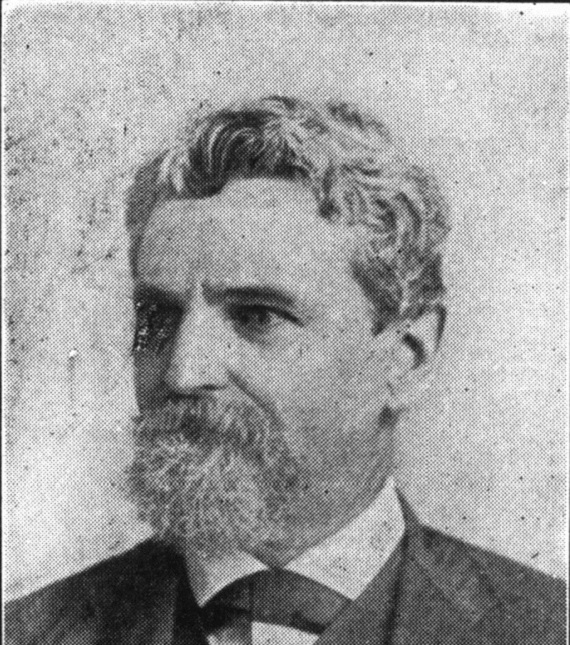St. John’s Episcopal Church, Thibodaux, Louisiana
Fenced off by iron and antebellum oaks
These April graves grow fragrant in the sun.
Sprung dandelions, puffballs, and buttercups
Tremble against the fissured concrete urns
Whose lichen-blotched worn bowls of measured earth
Hold lilies bloomed and risen from the dead.
And there where other tombs have sunken in
Or tilted with the shiftings of the world
The mild mid-morning light declares a name
Cut deep in marble laid as one long slab
On settled ground that bears the last remains
Of one whom nothing base could ever claim.
Your character was Anglican, restrained
Though come from Cornish Catholics whose lands
Henry the Eighth himself was set to seize
When seizures brought an end to his long reign.
Your grandsire gone abroad to be a priest
Felt called instead to Paris and the bars,
Then made his way to be the drunken judge
Of all the Attakapas till whiskey-talk
First cost him Claibourne’s favor, then his job.
Years later his own son, the sober judge,
Would settle where the Mississippi left
That bed in which it flowed a thousand years.
And there you walked the levee as a boy
Scattering great blue herons that would climb
Circling over the river’s swirling surge,
Finding their ancient flyway to the Gulf.
At home, in Bustle Hall, when you had read
Of Socrates on trial, old Solon’s code,
And Arthur’s barge passing from Lyonnesse,
That sunken land your Cornish fathers saw,
You rendered up the sense in your own words
And gave yourself in time to timeless norms
High classical and Christian that defined
The essence of your soul’s unshaken core.
Soon after at West Point, struggling to draw
And calculate, toughened by camp and drill,
You came to take the bearing of a man
And left behind youth’s foolishness and fears.
Your service done, you traveled home to find
Both parents and your elder brothers dead,
Yet even as you cried beside their tombs
You summoned up the fortitude to be
Paterfamilias, the man of law
Handling planters’ estates, the Braggs and Pughs,
Courting a judge’s daughter whom you wed
That final antique spring before the war.
Pro-union, and no warlord, nonetheless
You could not fight against your native state
And so you rode with Stonewall till you lost
An arm and half a leg and might have died
But for the tourniquets your one hand made.
You stayed awake all night among the slain,
Blood seeping from the sleeve you twisted tight,
Bullets tearing the air you barely breathed
Till in the dawn the stretcher-bearers came
And brought you to the surgeon’s knife and file —
No plasma, gas, or drugs — yet you survived
Those primal nights of utmost trial and pain.
Then when the war was ended you returned
To Bustle Hall destroyed by naval guns,
Those books you loved but ashes in the grass
And your last siblings, Martha, Josephine
So soon to die while you would still live on
Giving yourself to family and the bar
Till Radical graft and the Returning Board
Compelled you to defend the common weal.
And so you stood for governor and won
Outmaneuvering Packard, even Grant
Whose troops withdrew to win a lost campaign
Twelve years past Appomattox: Tilden-Hayes.
That year the Christmas bonfires burned in spring
While at your first inaugural you made
Those pledges you would keep: no favors, bribes,
Only fair laws that fostered public good,
Professions regulated, bayous cleaned.
And when you ran again, standing alone
You vetoed what the baser solons craved —
Lord Howard’s gold jangling against gold chains —
That lottery whose hollow wheels of glass
Were spun by Beauregard so orphans held
Blindfolded by the nuns might pluck one lot —
Cherubs of chance! — from all the rest who lost.
And when that term was over you would serve
Some twenty years upon the state’s high court
Deciding by set precedent, not trends,
Resigning past retirement only when
Old age and older wounds forced you to go
To that last winter posting of the soul.
And there in Thibodaux as those late dawns
Spread quietly in the sky like God’s first word
You murmured morning prayers in Cranmer’s tongue
And made your final peace with everything
In that unbroken silence where you died
Two years before the guns of August roared.
And by low lamps whose glow left parlor walls
Ghostly in rosy light and smoky shade
So like those battlefields where you were maimed
They laid your crippled limbs in judge’s robes —
The stars and bars pinned tight above your heart —
And though you were interred in heavy rain
Old soldiers you once led came unashamed
To wet your coffin-lid with lips and tears.
And now you have been dead these many years
Yet still we sense how much your struggles cost
Chiseled into your gravestone’s four plain lines:
“We would see Jesus for the shadows lengthen
Across this little landscape of our life.
We would see Jesus our weak faith to strengthen
For the last weariness, the final strife” —
And may all those who gaze upon your face
In bronze-relief on elevator doors
And marble in those halls in Baton Rouge
Agree as one that we uphold your name
And what was best within you when we ground
Our actions in those virtues that abound
In souls that nothing base can ever claim.
–printed in the Fall 1997 issue of The South Carolina Review







